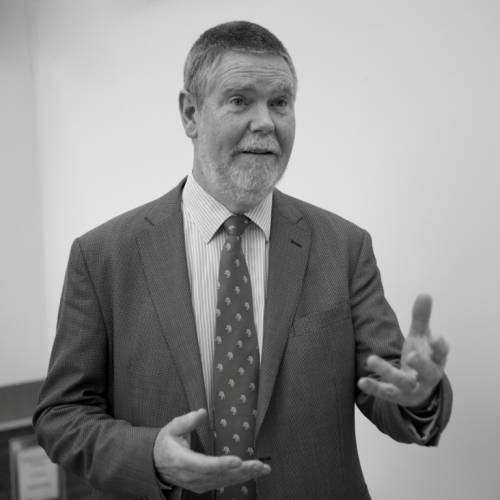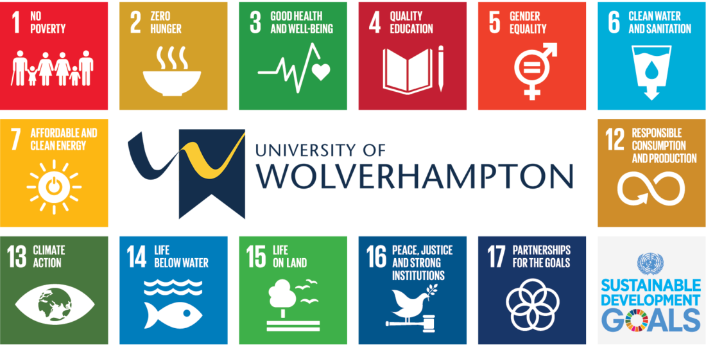The UN Global Compact – what is it and why it's important

A blog post written by Professor Philip Dearden, Head of Centre for International Development and Training (CIDT), on what the UN Global Compact is following the news that the University has successfully joined.
Joining the UN Global Compact represents an important, public step to shape a sustainable future through principled business. In order to work internationally, institutions need to commit to international standards and the UN Global Compact provides a universal language and framework for corporate responsibility, which is expected by development partners like the United Nations (UN) and the UK’s Foreign Commonwealth and Development Office (FCDO).
I’m pleased to report that the University has joined two important global initiatives. In a previous short blog I reported on why we have signed up to the Race to Zero initiative. Race to Zero is a global campaign to rally leadership and support from businesses, cities, regions, investors for a healthy, resilient, zero carbon recovery that prevents future threats, creates decent jobs, and unlocks inclusive, sustainable growth.
Here I want to talk about the United Nations Global Compact. By signing this important compact, we have committed ourselves to responsible business practices in the areas of human rights, labour, the environment, and corruption.
The UN Global Compact, aims to mobilise a global movement of sustainable companies and stakeholders to create the world we want.
To make this happen, the UN Global Compact supports organisations and companies to:
- Do business responsibly by aligning their strategies and operations with ten principles on human rights, labour, environment and anti-corruption; and
- Take strategic actions to advance broader societal goals, such as the UN Sustainable Development Goals, with an emphasis on collaboration and innovation.
The Ten Principles of the United Nations Global Compact are derived from: the Universal Declaration of Human Rights, the International Labour Organization's Declaration on Fundamental Principles and Rights at Work, the Rio Declaration on Environment and Development, and the United Nations Convention Against Corruption.
In summary these principles are:
Human Rights
- Principle 1: Businesses should support and respect the protection of internationally proclaimed human rights; and
- Principle 2: make sure that they are not complicit in human rights abuses.
Labour Standards
- Principle 3: Businesses should uphold the freedom of association and the effective recognition of the right to collective bargaining;
- Principle 4: the elimination of all forms of forced and compulsory labour;
- Principle 5: the effective abolition of child labour; and
- Principle 6: the elimination of discrimination in respect of employment and occupation.
Environment
- Principle 7: Businesses should support a precautionary approach to environmental challenges;
- Principle 8: undertake initiatives to promote greater environmental responsibility; and
- Principle 9: encourage the development and diffusion of environmentally friendly technologies.
Anti-Corruption
- Principle 10: Businesses should work against all forms of corruption, including extortion and bribery.
These ten principles are intrinsic to the sustainability of business, people and the planet. They offer organisations and companies of all sizes a blueprint for contributing towards achievement of the 2030 Agenda for Sustainable Development and the Paris Agreement. Indeed it can also be argued that the United Nations Global Compact is uniquely positioned to support organisations and companies as they align their practices for a sustainable and inclusive future, while building back stronger from the Covid-19 pandemic.
With the broad-based support of all 193 participant countries of the United Nations General Assembly, the UN Global Compact remains the single, global normative authority and reference point for action and leadership within a growing global corporate sustainability movement.
The pandemic and ongoing climate crisis have compromised much of the progress the world had attained since the adoption of the Global Goals in 2015. The new Global Compact strategy aims to regain that lost ground and advance much, much further by persuading the global business community, and its leaders, to scale up their contributions to the 2030 Agenda and the Paris Agreement.
Looking ahead, the University will need to institutionally report to the UN Global Compact with any progress we have made concerning the Ten Principles. The UN very much view this reporting as a continual development process or, in business terms, a process of Kaizen – i.e. an ongoing process of continuous improvement.
Our institutional commitment to the UN Global Compact immediately allows us to:
- Continue working with the many varied UN Organisations that we currently partner with - CIDT can continue their work with the International Labour Office, the Food and Agriculture Organisation, the World Food Programme and UNICEF
- Move forward with our new £1.1m BASIC three-year contract with Institute of Development Studies (IDS) and FCDO.
- Move forward with our new £400,000 Forestry and Wildlife Governance contract with FCDO.
This also means that others across the University will be free to bid for FCDO and UN work with the confidence that we are institutionally aligned and committed to the important UN Global Compact.
Our important university work on the associated UN Sustainable Development Goals has been reported on in a previous blog, see here.

For more information please contact the Corporate Communications Team.


/prod01/wlvacuk/media/departments/digital-content-and-communications/images-2024/Diane-Spencer-(Teaser-image).jpg)
/prod01/wlvacuk/media/departments/digital-content-and-communications/images-18-19/220325-Engineers_teach_thumbail.jpg)
/prod01/wlvacuk/media/departments/digital-content-and-communications/images-2024/240509-Menopause-Research-Resized.jpg)
/prod01/wlvacuk/media/departments/digital-content-and-communications/images/Maria-Serria-(teaser-image).jpg)
/prod01/wlvacuk/media/departments/digital-content-and-communications/images-2024/241014-Cyber4ME-Project-Resized.jpg)
/prod01/wlvacuk/media/departments/digital-content-and-communications/images-2024/240315-Research-Resized.jpg)
/prod01/wlvacuk/media/departments/digital-content-and-communications/images-2024/BDA-group-photo.jpg)